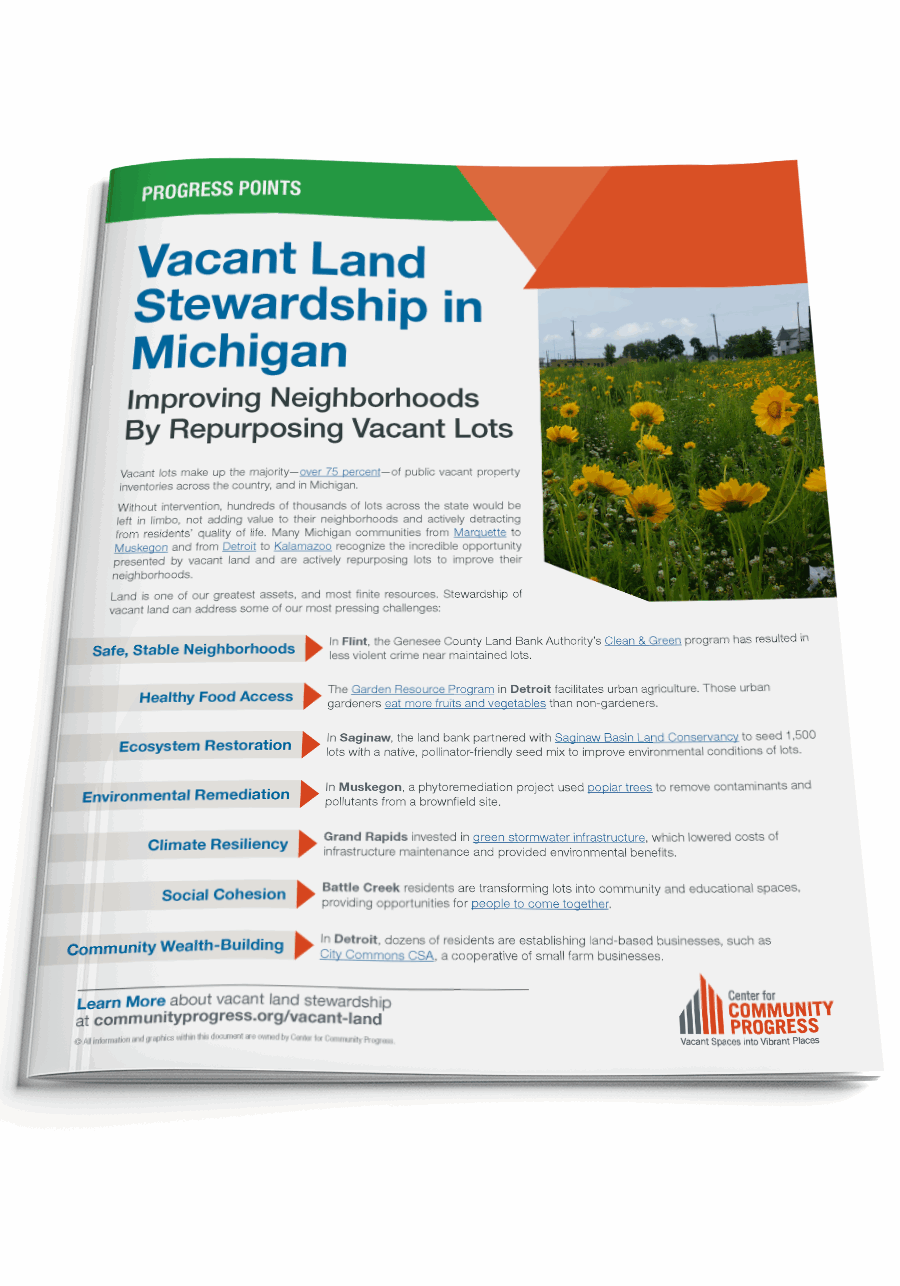Progress Points: Vacant Land Stewardship in Michigan
Improving Neighborhoods by Repurposing Vacant Lots
Topic(s): Local Analysis, Vacant Land Stewardship
Published: November 2022
Geography: Michigan
Author(s): Center for Community Progress
Vacant lots make up the majority—over 75 percent—of public vacant property inventories across the country, and in Michigan.
Without intervention, hundreds of thousands of lots across the state would be left in limbo, not adding value to their neighborhoods and actively detracting from residents’ quality of life. Many Michigan communities from Marquette to Muskegon and from Detroit to Kalamazoo recognize the incredible opportunity presented by vacant land and are actively repurposing lots to improve their neighborhoods. Land is one of our greatest assets, and most finite resources. Stewardship of vacant land can address some of our most pressing challenges:
- Safe, Stable Neighborhoods: In Flint, the Genesee County Land Bank Authority’s Clean & Green program has resulted in less violent crime near maintained lots.
- Healthy Food Access: The Garden Resource Program in Detroit facilitates urban agriculture. Those urban gardeners eat more fruits and vegetables than non-gardeners.
- Ecosystem Restoration: In Saginaw, the land bank partnered with Saginaw Basin Land Conservancy to seed 1,500 lots with a native, pollinator-friendly seed mix to improve environmental conditions of lots.
- Environmental Remediation: In Muskegon, a phytoremediation project used poplar trees to remove contaminants and pollutants from a brownfield site.
- Climate Resiliency: Grand Rapids invested in green stormwater infrastructure, which lowered costs of infrastructure maintenance and provided environmental benefits.
- Social Cohesion: Battle Creek residents are transforming lots into community and educational spaces, providing opportunities for people to come together.
- Community Wealth-Building: In Detroit, dozens of residents are establishing land-based businesses, such as City Commons CSA, a cooperative of small farm businesses.
Vacant land stewardship is the comprehensive repurposing and maintenance of vacant lots in service to community needs, priorities, and goals. Lots can become everything from well-maintained side yards to vegetable farms to pollinator habitats to solar fields. As communities move towards stewardship, they reap direct benefits for residents. Neighborhoods with repurposed and maintained lots realize an increase in property values, a reduction in crime, deepened resident engagement, and higher quality of life for residents.

Topic(s): Local Analysis, Vacant Land Stewardship
Published: November 2022
Geography: Michigan
Related Publications
Other Related Content
More content coming soon
Subscribe to join 14,000 community development leaders getting the latest resources from top experts on vacant property revitalization.
